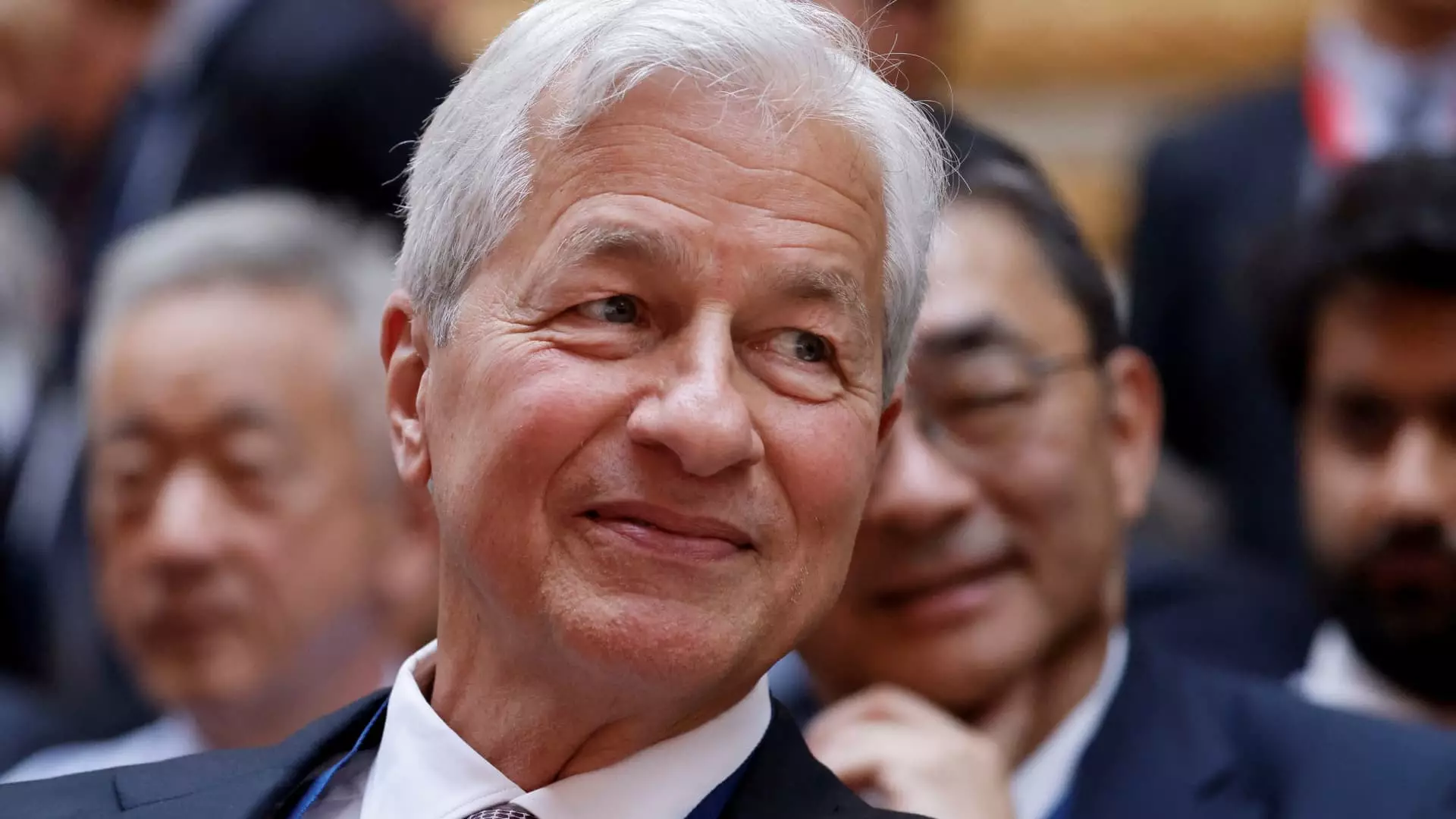As nations grapple with the intricacies of a global economy, the imposition of tariffs has come to the forefront of diplomatic and economic discussions. Recently, some corporate leaders have echoed a surprisingly optimistic view of these potential duties, despite widespread fears of catastrophic economic repercussions. Companies like JPMorgan Chase and Goldman Sachs have expressed the belief that tariffs, traditionally seen as a catalyst for tensions and inflation, can instead be utilized as tools for national benefit, provided they are implemented with care.
During an interview at the World Economic Forum in Davos, Jamie Dimon, CEO of JPMorgan Chase, articulated a nuanced perspective on President Trump’s proposed tariffs on various trading partners, including Mexico, Canada, China, and the European Union. While certainly controversial, Dimon suggested that if tariffs are viewed through the lens of national security, their inflationary effects may be justifiable. This represents a shift in the narrative around trade; rather than solely framing tariffs as obstacles to commerce, some leaders are advocating for their potential as strategic instruments for re-negotiating trade relationships.
Dimon’s assertion that “national security trumps a little bit more inflation” encapsulates a recurring theme among certain business leaders: the prioritization of protecting American interests over slight economic discomfort. He referenced the need for better trade deals and emphasized that, under the right circumstances, tariffs could foster meaningful negotiations. The U.S. has long struggled with trade deficits, particularly with the European Union, where figures highlight a staggering $214 billion deficit. As such, the imposition of tariffs could compel nations to reconsider the terms of trade with the U.S., prompting more favorable agreements.
However, the situation remains precarious. The concept of trade as a power play rather than a cooperative effort raises questions about the long-term viability of such measures. If tariffs are viewed merely as economic leverage, the risk of escalating tensions could outweigh their potential benefits. As history has demonstrated, trade wars can lead to retaliatory actions that further decimate an already fragile global market.
Interestingly, Dimon’s perspective is not an isolated one. Other industry titans, such as David Solomon from Goldman Sachs, have similarly recognized the need for policy evolution in an increasingly globalized world. Solomon’s comments, suggesting the idea of “rebalancing” trade agreements, reflect a broader sentiment within the financial community that a controlled approach to tariffs could encourage economic growth in the U.S.
Nevertheless, the inquiry into how “thoughtfully” tariffs are implemented is crucial. The uncertainty surrounding such policy shifts can stifle business planning and investment. A key element of robust economic growth is predictability, and any abrupt changes to trade policy can have downstream effects that might hinder long-term strategies.
As the U.S. government indicates imminent tariff implementation, economic observers will be watching keenly to see how businesses adapt to this shifting landscape. The concern looms that while some may welcome the chance to renegotiate trade agreements, others might find their operations hampered by increased costs and supply chain disruptions.
The notion that tariffs could act as economic tools opens the door for debate. Could they indeed foster a more favorable trade environment, or do they risk igniting larger trade disputes? For the financial sector, these developments are closely tied to the health of the dollar and the overall growth narrative. Dimon pointed out that while tariffs can sway the dollar’s value, they must not eclipse the paramount goal of sustainable economic growth.
The implications of tariffs are far-reaching and multifaceted. As leaders like Dimon and Solomon promote a more favorable outlook on this contentious subject, the global community must remain vigilant. The careful navigation of these economic waters will be essential in mitigating risks while also seizing opportunities to strengthen national interests. The coming months will likely reveal whether this optimistic perspective is grounded in reality or merely a fleeting sentiment.

